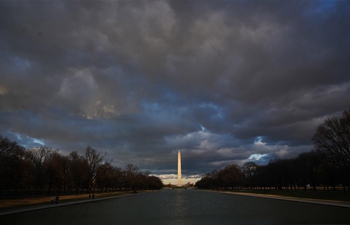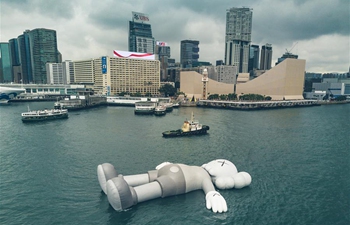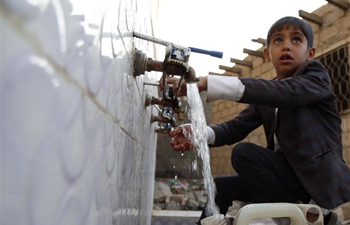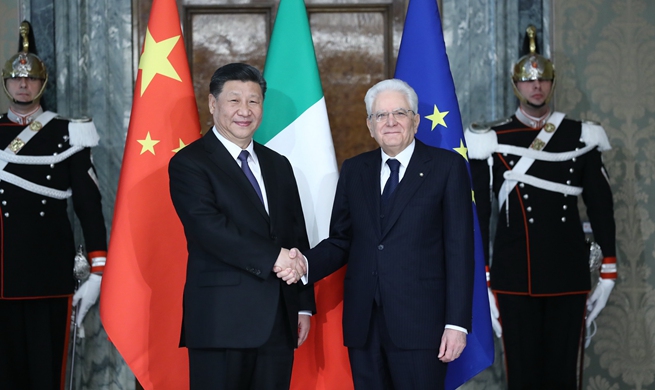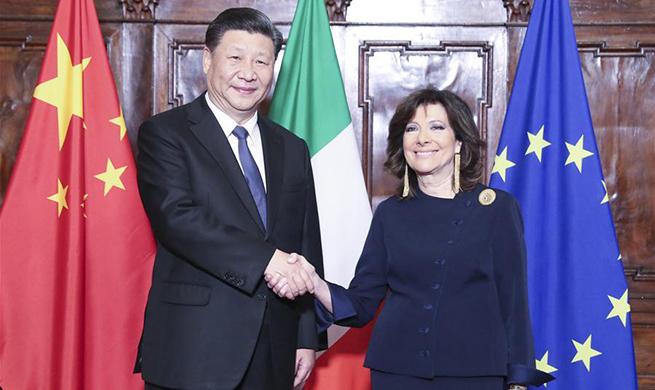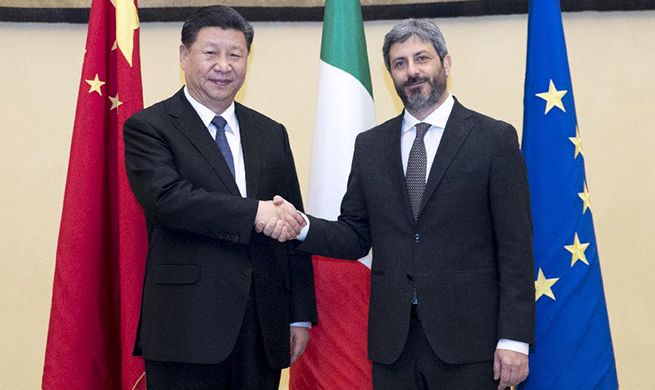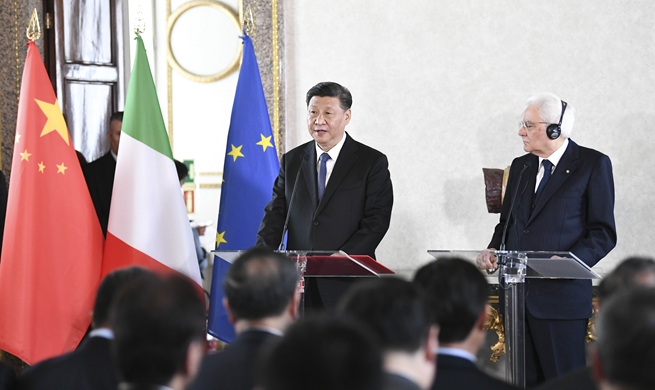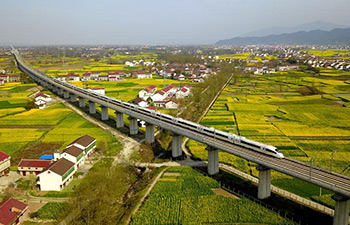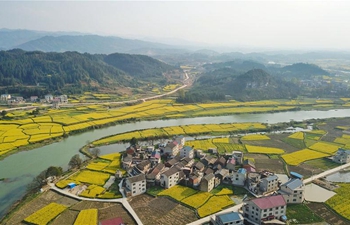BANDAR SERI BEGAWAN, March 23 (Xinhua) -- Car ownership in Brunei is saturated and the sultanate stands to benefit from fuel economy policies over time, according to a publication of the Association of Southeast Asian Nations (ASEAN).
The "ASEAN Fuel Economy Roadmap for Transport Sector 2018-2025: with Focus on Light-Duty Vehicles," released recently, shows Brunei has fully saturated its vehicle ownership, being the only country within the 10-member Southeast Asian bloc to have done so.
Vehicle ownership in Brunei stood at 419 vehicles per 1,000 people in 2013. The country's saturation level, according to the roadmap, is 420 vehicles per 1,000 people.
The level of vehicle ownership in a country is said to be saturated when vehicle ownership per capita in that market stops growing.
Vehicle ownership in the sultanate is also expected to remain fully saturated until 2040.
It added that given its high level of vehicle ownership, Brunei "could benefit from fuel economy policies as the vehicle fleet is refreshed over time."
Meanwhile, the roadmap singled out Brunei for its high fuel subsidies, saying this denotes that the sultanate's gasoline prices are below the world market price for crude oil.
Data from the roadmap show that the sultanate has the cheapest average petroleum price at the pump, at 41 U.S. cents per liter, while on the other end of the range, Singapore, which heavily taxes fuel, prices its petrol at 1.58 U.S. dollars per liter.
"Fuel taxes are a very efficient means of motivating fuel efficiency improvement. Cutting subsidies can thus be a key starting point towards effective fuel economy policies," ASEAN says.
The roadmap reveals that Brunei, along with Malaysia and the Philippines, is planning to introduce fuel economy labels for vehicles, following the lead of Singapore, Thailand, and Vietnam, which impose mandatory labeling schemes for light duty vehicles, as well as Indonesia, where labeling is voluntary.
It also notes that Brunei wants to adopt the European Union (EU)'s carbon dioxide emissions standards for light duty vehicles, and points out that the EU rules on limiting motor fuel consumption are more stringent than existing measures being implemented on a voluntary basis in other ASEAN markets.
Xinhua earlier reported that Brunei will introduce in 2023 fuel economy regulations that aim to reduce the country's carbon dioxide emissions and lower motor fuel subsidies.
Minister of Energy, Manpower and Industry Hj Mat Suny said during Thursday's Legislative Council meeting that the regulation, which will be hammered out with Ministry of Transport and Infocommunications, will be enforced in stages beginning 2025.
